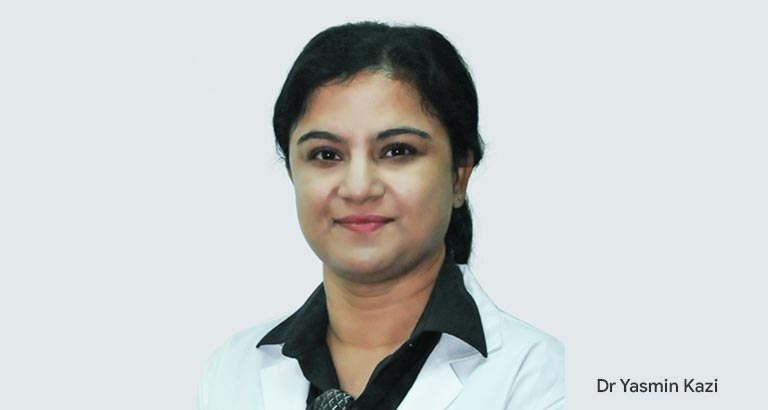
The thought of undergoing in-vitro fertilisation can be scary and women who have tried it and failed are sceptical. But Bahrain Specialist Hospital believes miracles are possible with time and a little faith.
IVF is a technique of fertilisation offered to couples suffering from infertility. Since the first IVF baby was born in 1978, there have been numerous successful pregnancies using this technique. During an IVF cycle, which lasts about two weeks, mature eggs are retrieved from a woman’s ovaries and fertilised by sperm in a specialised laboratory (outside the woman’s body). The resultant embryo is transferred back to the woman’s uterus with the aim of a successful pregnancy.
Dr Yasmin Kazi, who is an obstetrician, IVF specialist and advanced gynaecological laparoscopic surgeon at Bahrain Specialist Hospital, explains the scenarios where IVF is required and the options available for someone who has previously failed the treatment.
Why do we need IVF?
Whether you need IVF or not, will depend on the reason for your infertility. IVF is considered as the first line of treatment for indications such as blocked tubes, advanced stage endometriosis, irreparable male factor infertility, poor ovarian reserve, fibroids, endometriosis, diabetes, thyroid problems etc. In other cases, IVF may be recommended only when other treatments have failed.
What causes unsuccessful IVF?
A reason why previous IVF cycles may have failed could be that the transferred embryo may have had an irregular number of chromosomes leading to genetic or molecular embryo abnormalities. This is one of the leading causes of implantation failure in IVF, according to Dr Kazi.
Sometimes, the lining of the uterus may not be optimum in its thickness, blood supply or the time frame in which it is able to accept an embryo for implantation and growth. The embryo is then not able to attach to the uterine lining and the result is a failed pregnancy.
What after IVF failure?
“Whether or not to try again with an IVF cycle and how soon and how many times depends on many factors. Physical fitness and emotional readiness should be considered before taking a decision,” advises Dr Yasmin Kazi. When the next cycle is planned, the IVF expert will assess the age of the patient and any previous treatment cycles to modify treatment schedules to optimise outcomes.
Various interventions that may be offered to improve success rates:
Blastocyst culture: In this process, embryos are grown up to day five in the lab and then transferred;
Sequential transfer: When one embryo is transferred on day three and another on day five;
Endometrial scratch procedure: This comprises disrupting the lining of the uterus in a previous cycle, which has shown to improve implantation rates in subsequent months;
Hysteroscopy: This is done to check the cavity of the womb and its lining and to correct any issues that are found;
Donor egg treatment: In older women, where the egg quality was the reason for failed IVF, donor egg treatment may be an option;
Medication: Use of medication or stem cell extracts to increase the stickiness of the lining of the womb. Medication can be used to help increase the blood flow to the womb lining.
These interventions help in improving success rates of conception and should be offered second time round depending on individual conditions.
“Chances of success are also better if you were pregnant with the same partner previously,” observes Dr Kazi. Therefore, it is possible to improve the success rate in repeat IVF. “You will become a parent, if that is your heart's desire,” believes Dr Kazi.
Call 17 812-000 or email [email protected]



